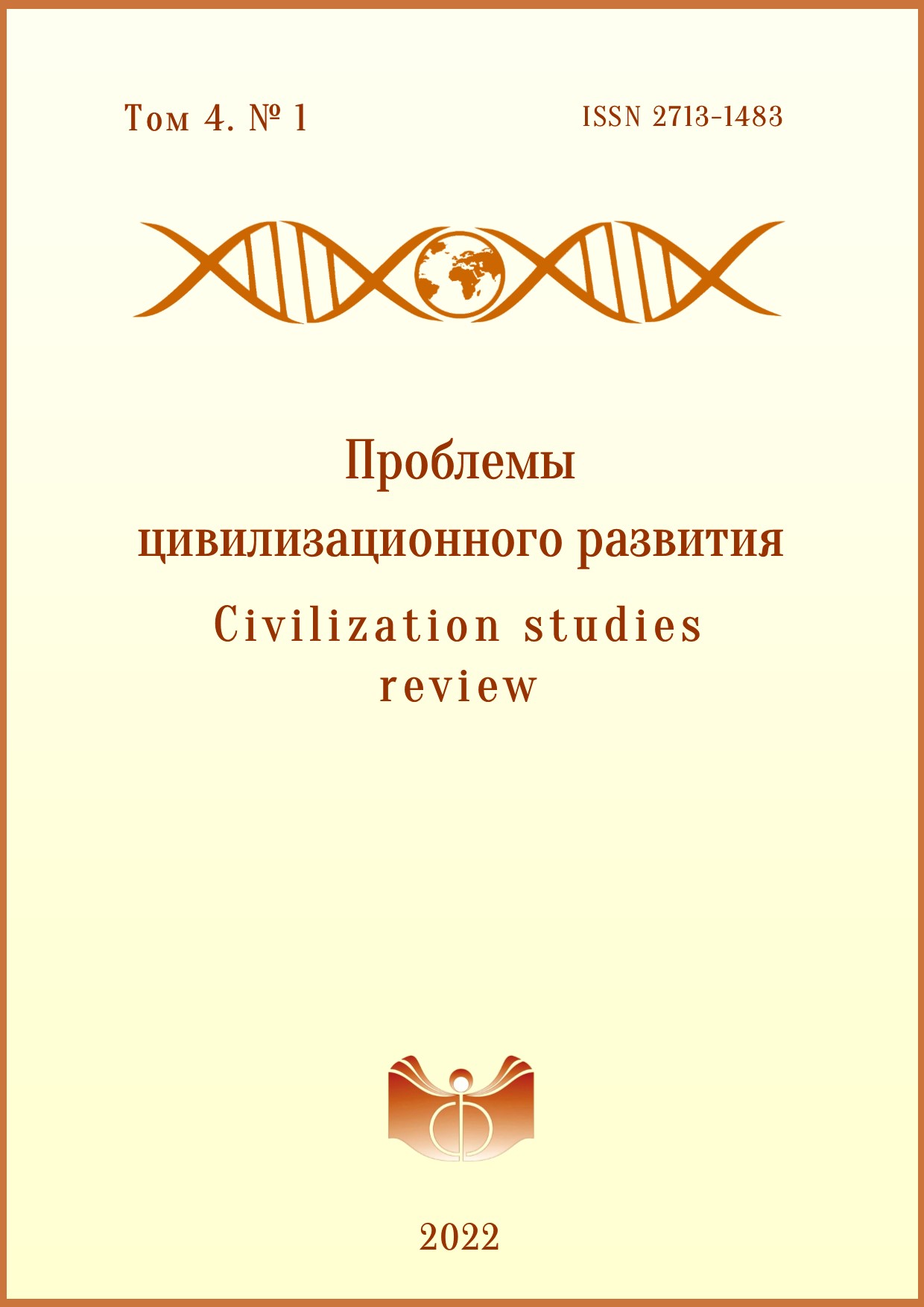Measures of civilisation
DOI:
https://doi.org/10.21146/2713-1483-2022-4-1-90-106Keywords:
civilizations, civilizational approach, Russian civilizational project, universalism, barbarization, liberal model crisis, West and East.Abstract
The article makes an attempt to consider the concept of “civilization” and its corollary concept of “barbarism” from different perspectives. It shows how the term “civilization” successively acquires ideological, scientific and philosophical dimensions. The emergence in the course of history of such social institutions as religion, trade, politics, law, and, finally, centralized military industry and a developed economy mark the stages of the gradual filling of the concept of civility with the content that we find in it today. Barbarism from an anthropological-geographical characteristic turns into a designation of functional features of social processes – a measure of their deviation from a “civilized” mode of action. The authors are inclined to believe that, despite the historical diversity of civilization strategies, the civilization movement is rather a universal means of searching for a balanced approach to the use of resources both by individual human communities and humankind as a whole. A generalized idea of energy efficiency can serve as a rough measure of the success of civilizational processes.

